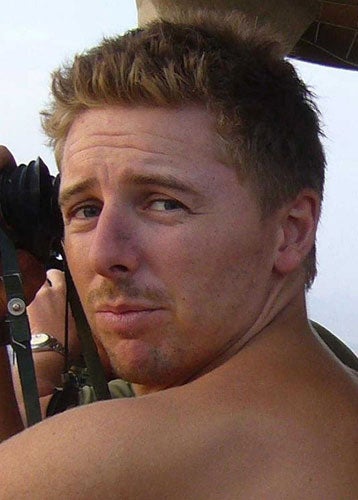Need for rescue helicopter 'was queried'

Your support helps us to tell the story
From reproductive rights to climate change to Big Tech, The Independent is on the ground when the story is developing. Whether it's investigating the financials of Elon Musk's pro-Trump PAC or producing our latest documentary, 'The A Word', which shines a light on the American women fighting for reproductive rights, we know how important it is to parse out the facts from the messaging.
At such a critical moment in US history, we need reporters on the ground. Your donation allows us to keep sending journalists to speak to both sides of the story.
The Independent is trusted by Americans across the entire political spectrum. And unlike many other quality news outlets, we choose not to lock Americans out of our reporting and analysis with paywalls. We believe quality journalism should be available to everyone, paid for by those who can afford it.
Your support makes all the difference.A young British soldier died and several more were horrifically injured because of a dire shortage of British helicopters in Afghanistan, their former commanding officer said.
Corporal Mark Wright, 27, who was posthumously awarded the George Cross for his bravery, was among a team sent into a minefield to help an injured soldier but he was killed when a helicopter without a winch was assigned to rescue the team and a mine exploded as the aircraft tried to land.
At the inquest into Cpl Wright's death yesterday, Colonel Stuart Tootal said that the Chinook helicopter he had been forced to send in to rescue his men – because there was no US Black Hawk initially available to winch them out – had caused the mine to explode.
Had the British had their own winch helicopter available, instead of having to beg up the chain of command to use an American aircraft, the soldier would not have died and two more would not have lost legs. "I am strongly of the belief we would have been dealing with one casualty," Col Tootal said.
He added that it was imperative that the British forces have such a rescue capability in Afghanistan.
In brutally frank evidence at the inquest, the former commanding officer said that the battle group had been "stretched to breaking point" through a lack of resources when they had been sent into the now notoriously dangerous southern province in Afghanistan two years ago.
Far from being a benign, peaceful area, as they had been told, 3rd Battalion, the Parachute Regiment, was soon battling against a ferocious enemy.
Col Tootal recalled how his men had been left to bleed in the minefield as he had gone through the "frustrating" process of having people question his urgent need for a US Black Hawk as the request had gone through the Nato chain of command.
"As far as I was concerned it was about decision-making and someone not pulling their finger out and making the right decision," he said.
Forced to take alternative action, he sent in a British Chinook. For the past two years it has been debated whether the downwash of the helicopter set off the mine as it landed or whether Cpl Wright lent on the explosive.
Col Tootal said: "My view is there is definitely a causal link between the helicopter and detonation," he said, adding that he took full responsibility for the decision to send that aircraft.
In moving testimony before the young man's father, Col Tootal described how he and the Regimental Sergeant Major had carefully placed Crp Wright in a body bag after he had died on the helicopter trip back to the field hospital. He said the soldier had no arm or leg injuries to suggest that he had stepped or lent on the mine.
A Black Hawk had eventually been sent to the site but it had been too late to save Cpl Wright.
Col Tootal said 6 September 2006 had been one of the darkest days of the tour. As well as the events in Kajaki, the battle group had been involved in fighting in Sangin and Musa Qala. Three men had died that day and another 18 had been wounded.
They had been just one battle group of 1,200 men trying to cover the same area that was now held by five battle groups, Col Tootal said. He is one of several high profile officers to have since resigned from the Army.
"I was 170 men short, and that doesn't include combat casualties, because we had soldiers on R&R [leave] and we were deployed undermanned."
He continued: "Resources were stretched to breaking point. We never had enough helicopters. Everything was in short supply... My soldiers got on and did what they could to deliver what I thought was an outstanding performance."
Join our commenting forum
Join thought-provoking conversations, follow other Independent readers and see their replies
Comments